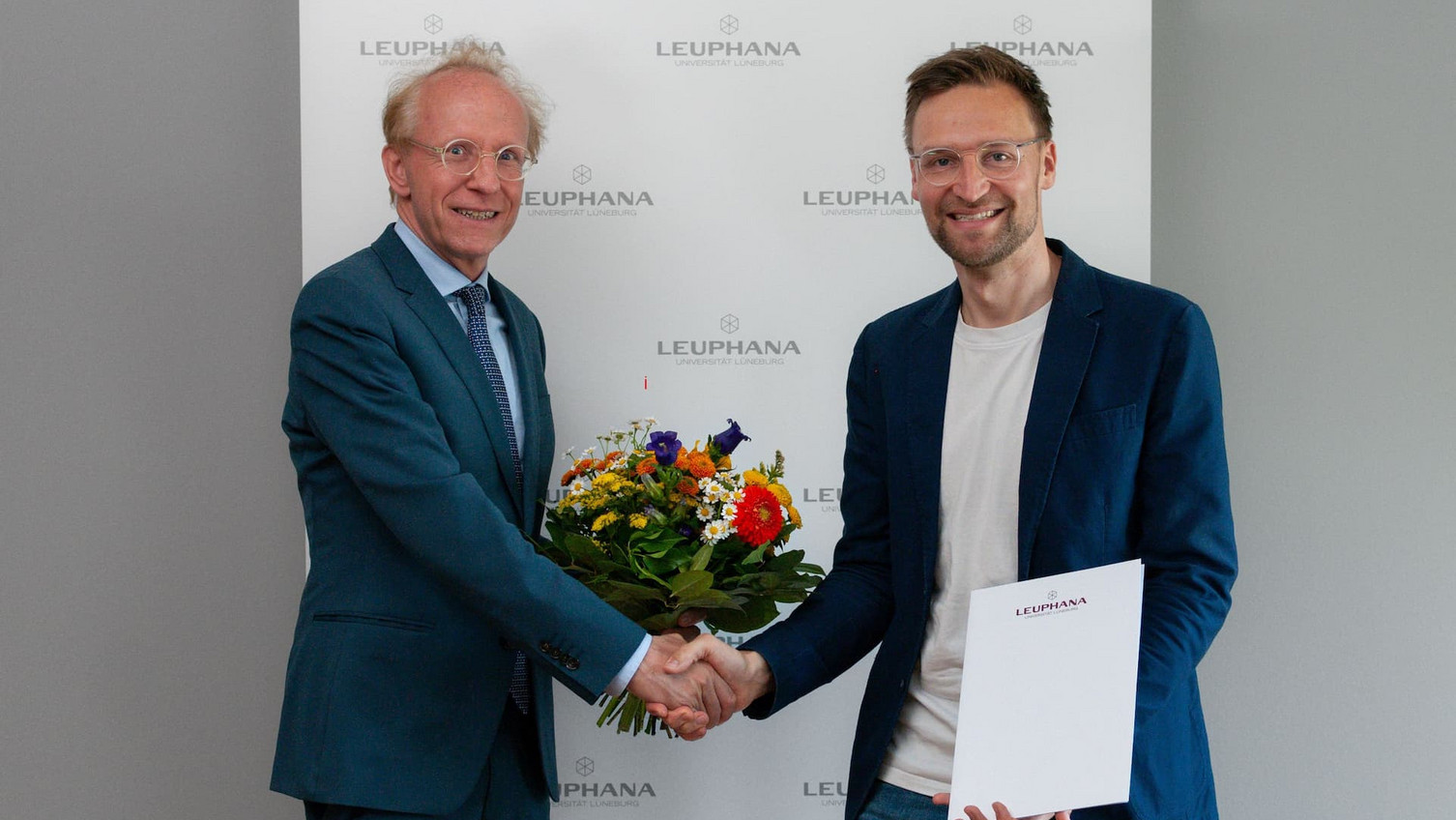New at Leuphana: Prof. Dr. Harald Hantke
The Professional is Political
2023-08-14 The junior professor for Social Science Education, in particular Economic Didactics, focuses on sustainability in his research and teaching. With transformative vocational education, training occupations could become more meaningful and attractive for applicants, says the researcher.
Work and careers have long been more than just a means of earning a living. "Young people want to help shape and be part of social change - also through their profession," says Prof. Dr. Harald Hantke. The junior professor for social science education, especially business didactics, focuses his research on transformative education in the context of business and work and teaches at Leuphana in teacher training for vocational schools, among other things.
He is aware of the discrepancy between the educational mandate of vocational schools to enable trainees to help shape society in a socially and ecologically responsible manner and the operational routine in which the vocational qualification of trainees is in the foreground: "We are talking about a paradox here: the demand often does not coincide with its fulfilment - even more: both perspectives seem to be difficult to reconcile at first," says Harald Hantke. With his research, he wants to provide impulses for teachers and learners to be able to deal productively with this contradiction and the uncertainties that accompany it. With a view to the professionalisation of educational staff, he adds: "For teachers at vocational schools, the question is: How do I design lessons in order to qualify young people for the profession on the one hand and not lose sight of the socially relevant questions about the current transformation processes on the other? In this context, professional action always has political implications - especially when it comes to ethical questions. However, this connection is still little researched," explains Harald Hantke.
It is fitting that the outline of a design-oriented research project for the development, testing, evaluation and dissemination of a further education and training concept for vocational training staff in the metal and electrical industry was recently approved. This means that the corresponding full application can now be submitted in cooperation with colleagues from the University of Bielefeld. "One of the aims of this project is to enable training staff to recognise (company) fields of action related to sustainability, taking into account political and social implications, so that they can independently design transformative training events on this basis," explains Harald Hantke.
For him, the transdisciplinary exchange with trainers and trainees is crucial: "For me, induction is more important than deduction. Methodologically, I develop with practice for practice." He also sees this way of thinking as a means of combating the shortage of skilled workers: "A company that deals with ethical issues in an integrative way appeals to more young people. They want to be part of the change. Seeing apprentices as creators is a new understanding of training. In the classical master apprenticeship, the experienced person showed and the apprentice imitated. But when it comes to change, imitation is no longer enough," says Harald Hantke.
Further research focuses on curricular development as part of school development as well as empirical educational research - for example, on hybrid teaching-learning arrangements: "There is great potential in the mixture of presence and digital teaching or digital instruction, which is not yet extensively exploited in the classroom: The Corona pandemic, for example, made it clear that physical contact is necessary for collaborative and creative work to actually succeed. On the other hand, it has also been shown that the digital is valuable, for example, for quick and constant communication and securing results.
Prof. Dr. Harald Hantke studied business education and political science and was awarded his doctorate from Leuphana University Lüneburg in 2022 with a dissertation entitled Resonant Spaces of the Subpolitical as Teaching-Learning Arrangements of a Critical-Transformative Vocational Education in the Context of Sustainable Development. After teaching at the Carl von Ossietzky University of Oldenburg and the Karl Franzens University of Graz and completing his traineeship for the teaching profession at vocational schools, he was appointed junior professor for social science education, in particular business didactics, at the Institute for Social Science Education at Leuphana in June 2023.

